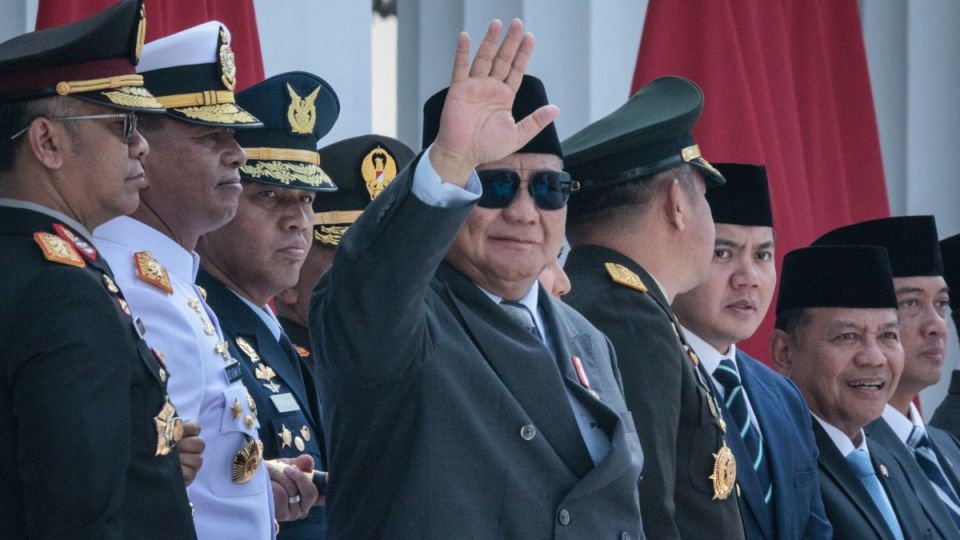August 6, 2025
JAKARTA – President Prabowo Subianto’s decision to pardon Thomas Lembong and Hasto Kristiyanto in their high-profile graft cases has sounded alarms over political interference in the judiciary and sparked renewed scrutiny over his administration’s commitment to anticorruption.
Prabowo’s request to grant clemency to former trade minister Thomas and amnesty for 1,178 convicts, including Hasto, the secretary-general of the Indonesian Democratic Party of Struggle (PDI-P), the only party outside of the ruling coalition, was approved by lawmakers last week in a move that sent shockwaves throughout the country.
In two separate cases that have drawn widespread public scrutiny because of their politically charged nature, Thomas and Hasto were sentenced to prison last month for corruption for a raw sugar import policy and bribery tied to a legislative seat appointment scheme, respectively.
The government has maintained that the President’s clemency for Thomas and Hasto was solely for “national interests and public unity”, and the PDI-P has denied that Hasto’s amnesty was part of a political deal.
But anticorruption watchdogs said on Monday that because appeals at higher courts are still available, the timing of the President’s clemency cannot be justified. They said such a pardon “constitutes executive interference in the judiciary” and shuts down opportunities for uncovering institutional flaws that could inform anticorruption reform.
“Beyond their deterrent effect, rulings in graft cases serve as a basis for improving legislation, systems and governance. When a case is settled through amnesty or abolition, it makes the trials seem like they never happened,” said Indonesia Corruption Watch (ICW), Transparency International Indonesia (TII) and IM57+.
If the President continues to pardon corruption convicts, the groups warned, he risks enabling impunity, diminishing deterrence and encouraging future violators to exploit claims of political persecution to gain public sympathy.
“If the President is committed to upholding the integrity of law enforcement that is firm, fair and free from politicization, the urgent priority should be to strengthen the independence of legal institutions,” they added.
Read also: Prabowo reconciles with opposition through pardons
Former Corruption Eradication Commission (KPK) investigator Novel Baswedan also criticized the pardons, saying that they could set a dangerous precedent in Indonesia’s anticorruption campaign.
“[The clemency] is inconsistent with the President’s pledge to eradicate corruption. It creates the impression that corruption eradication has no place or support from the government and the House of Representatives,” Novel said on Friday.
Unaffected
In a press conference on Friday night, Law Minister Supratman Andi Agtas, a member of Prabowo’s Gerindra Party, insisted that granting clemency is the President’s prerogative, and no law requires that it be granted only after a case reaches a final verdict.
“There is no need to doubt that the President and all of us in his ranks will continue to ensure that the fight against corruption remains unaffected by the granting of amnesty and abolition,” Supratman said.
He added that Thomas and Hasto were the only two graft convicts among the 1,178 individuals granted clemency.
Ghost of past presidency?
Both Thomas and Hasto’s investigations and convictions have been widely seen by the public and experts as examples of political interference in the judiciary, with their legal teams claiming they were targeted for criticizing former president Joko “Jokowi” Widodo, who tacitly backed Prabowo in last year’s election.
Thomas was named a suspect in October for a sugar import policy he issued a decade ago while serving as Jokowi’s trade minister. He was found guilty despite the court acknowledging that he had no criminal intent and received no personal gain from a policy that stemmed from Jokowi’s directive.
Read also: PDI-P to keep govt at arm’s length
Hasto, meanwhile, was named a suspect by the KPK shortly after its new leadership – selected in the final days of Jokowi’s presidency – took office. Last month, Hasto was convicted of bribery in a 2019 legislative seat scheme involving fellow PDI-P politician Harun Masiku, who remains at large.
Mahfud MD, a former vice presidential candidate who ran on the PDI-P’s ticket and a former coordinating minister in Jokowi’s cabinet, said that Prabowo made the right call to grant clemency following “public outcry” over “very strong political nuances” in Thomas and Hasto’s cases.
“The law must not be influenced by politics or politically motivated agendas,” Mahfud said in a video statement on Friday. “[The granting of clemency] brings renewed hope that the law will be upheld, and we hope this will continue. We pray that Prabowo remains committed to building a true law-abiding [nation].


